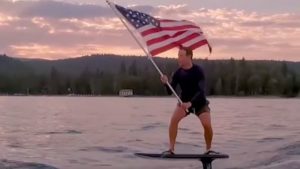Zuckerberg Avoids Personal Liability for Social Media “Addiction”–In re Social Media Addiction
I never blogged the dual state and federal rulings in the Social Media Addiction cases from last Fall. I wrote up a 4,000 word draft about the state court ruling, but the federal ruling came out before I finished it. I couldn’t blog just the state case without discussing the new development, so I planned to modify my blog post on the state court ruling to compare/contrast the federal ruling. However, life intervened, and my massive blog post got stuck in draft mode.
I can’t easily track the state court litigation, but the federal litigation is a sight to behold. It’s an MDL where the plaintiff lawyers are in total war mode, throwing seemingly inexhaustible resources at the case to explore every possible issue and angle of liability, no matter how arcane or tangential.
 For example, the plaintiffs sought to hold Mark Zuckerberg individually liable for his contributions to the alleged addiction. The allegations include:
For example, the plaintiffs sought to hold Mark Zuckerberg individually liable for his contributions to the alleged addiction. The allegations include:
In Zuckerberg’s testimony before Congress and in other public statements alleged in paragraphs 364 through 391 of the Master Complaint, Defendants Meta and Zuckerberg disclosed some facts but intentionally failed to disclose other facts, making their disclosures deceptive. In addition, Meta and Zuckerberg intentionally failed to disclose certain facts that were known only to them, which Plaintiff and their parents could not have discovered. Had the omitted information been disclosed, the injuries that Plaintiff suffered would have been avoidable and avoided.
As you can infer, the plaintiffs are cherrypicking random public statements made by Zuckerberg and trying to connect those anecdotes into a sinister plot. It doesn’t work.
To resolve this motion, the court must apply the heterogeneous laws of 13 different states. A shoutout to the law clerks who sorted through all of this. The plaintiffs were proceeding solely on theories of omission, not affirmative misrepresentations. Some states don’t recognize negligent misrepresentation by omission. In the other states, the plaintiffs must establish that the speaker (Zuckerberg) had a duty to disclose the omitted information. Those states impose a disclosure duty in a range of circumstances, none of which apply to Zuckerberg. The plaintiffs never transacted directly with Zuckerberg (or had any relationship at all with him personally), and the plaintiffs overreached trying to impose a general disclosure duty on anyone recognizable to the public. Without a disclosure duty, the omission-based claims fail.
To salvage the claim, at the 11th hour, the plaintiffs offered a new theory of corporate officer liability. Because it was underdeveloped, the court tells the plaintiffs to try that theory again before the court will definitively rule on it. As a result, Zuckerberg’s personal liability might still be in play.
Case Citation: In re Social Media Adolescent Addiction/Personal Injury Products Liability Litigation, No. 4:22-md-03047-YGR (N.D. Cal. April 15, 2024)
